9 key findings from Understanding the UK AI labour market: 2020 Report
Published 18 May 2021
1. Skills shortages
Firms reported shortages of candidates in the labour market with AI and data science skills

Skills shortages
- A third (35%) of firms said that existing employees lacking technical skills had prevented them from meeting their business goals, and 49% said that job applicants lacking technical skills had done the same.
2. Skills gap
Firms reported skills gaps among their existing employees working with AI or data science.
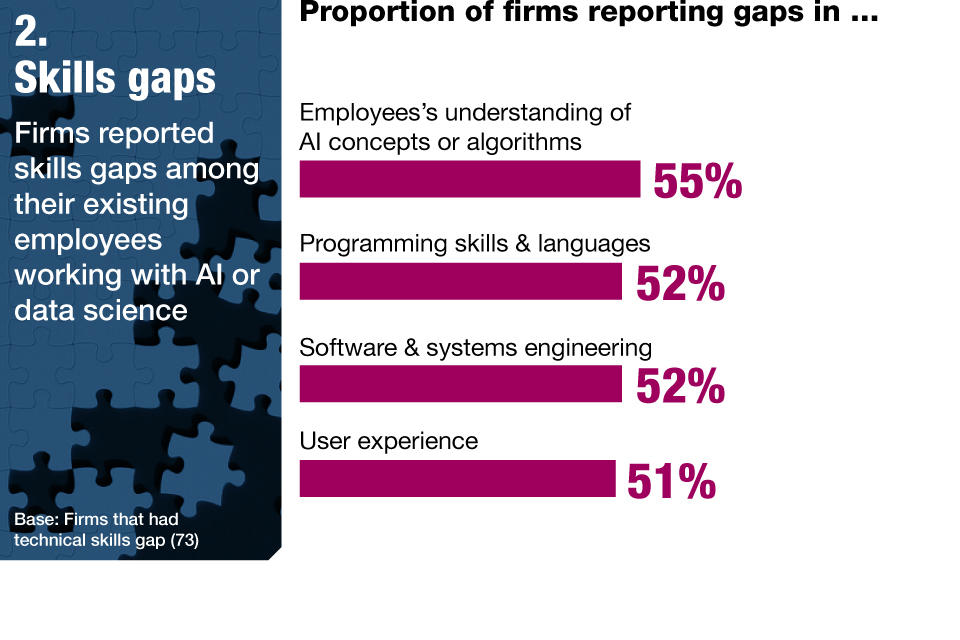
Skills gap
-
Technical skills gaps were reported in: understanding of AI concepts and algorithms (55%), programming skills and languages (52%), software and systems engineering (52%), and user experience (51%).
-
In the survey, two-thirds of firms (67%) expected that the demand for AI skills in their organisation was likely to increase in the next 12 months.
3. Recruitment
Firms reported finding it hard to fill all their AI and data science job vacancies
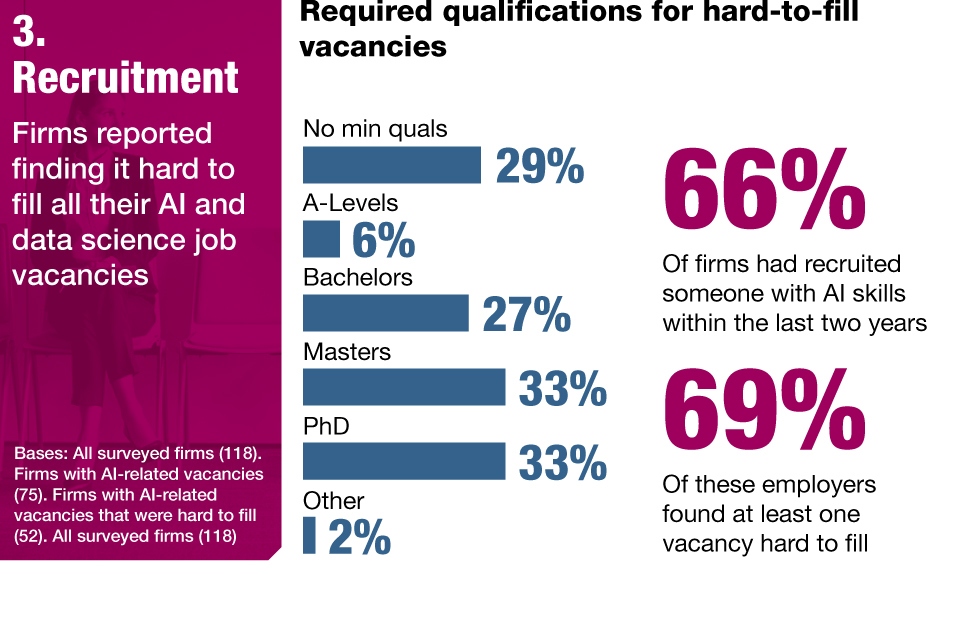
Recruitment
-
Two-thirds of surveyed firms had tried to recruit in the last two years. Of those who had tried to recruit, word of mouth or industry networks was the most common channel (42%), and one in five (22%) had partnered with a university.
-
Among those that had vacancies in the last 2 years, 69% said that at least one vacancy was hard to fill. This was higher than in the cyber sector (57%). The bulk of hard-to-fill vacancies were among middle-management and other senior roles, which required 3 or more years of experience.
4. Job postings
2020 had the highest number to date of online job vacancies related to AI and data science
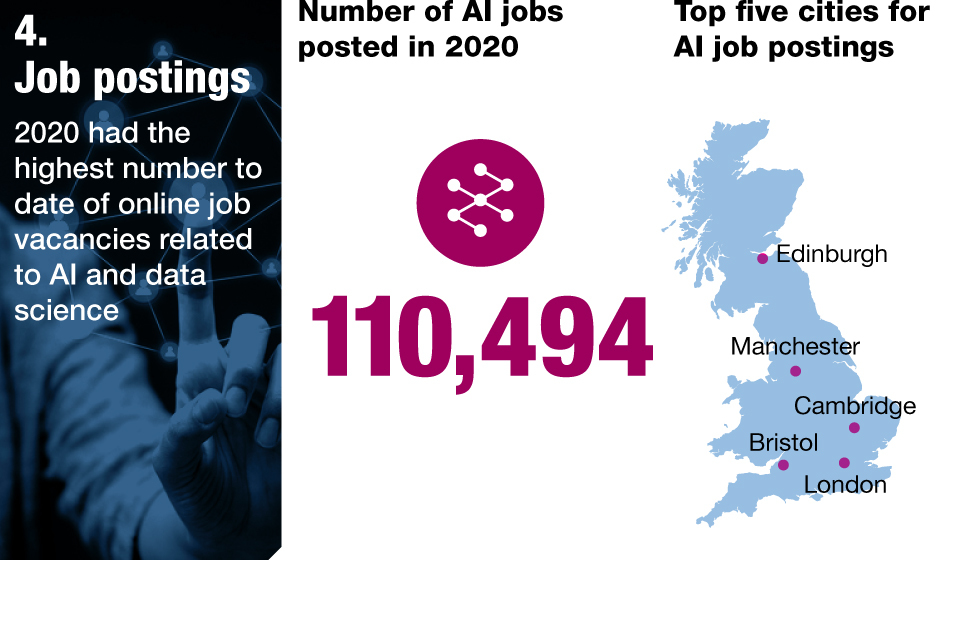
Job postings
-
2020 was the highest year to date for the number of online job vacancies related to AI and Data Science, with an increase of 16% from 2019 levels.
-
The job postings search identified 110,495 postings in AI and Data science from January to December 2020.
-
The annual number of job postings had more than doubled since 2014. More than half of these job posts were in London and the South East. London was a major hotspot for AI and data science roles, with 36,715 roles identified. This was followed by Cambridge (5,453), Manchester (3,619), Bristol (2,505), Edinburgh (2,365), Oxford (2,311) and Birmingham (2,095).
-
The mean advertised salary was £54,800 for an AI and data science related job posting (with a median value of £50,000).
5. Barriers to filling vacancies
Skills shortages were most often the reason AI and data science vacancies were hard to fill
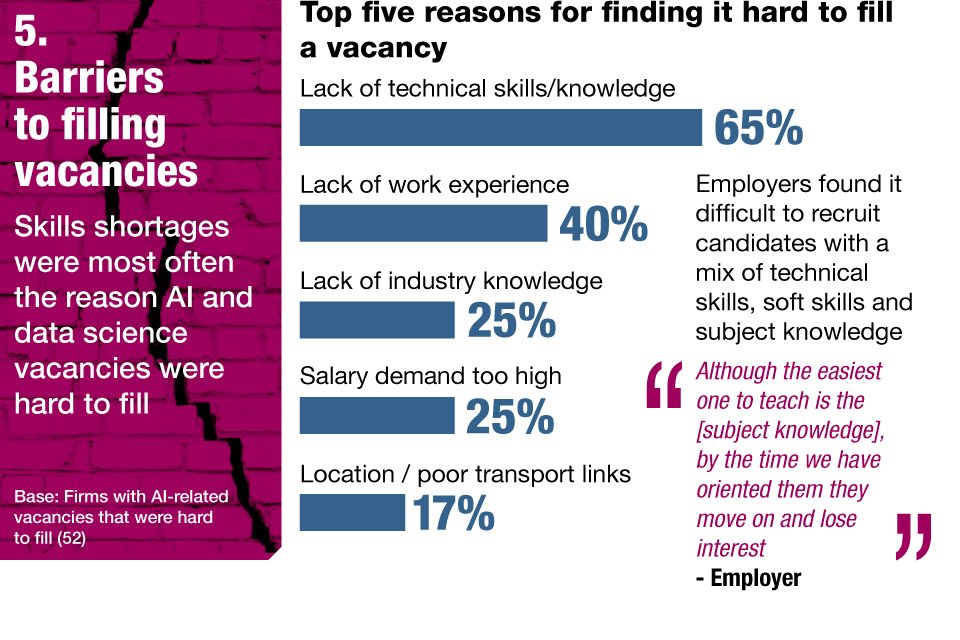
Barriers to filling vacancies
- Barriers to filling vacancies included: applicants lacking technical skills and knowledge (65%), work experience (40%), and industry knowledge (25%).
6. Diversity
There was a lack of gender balance in AI and data science teams
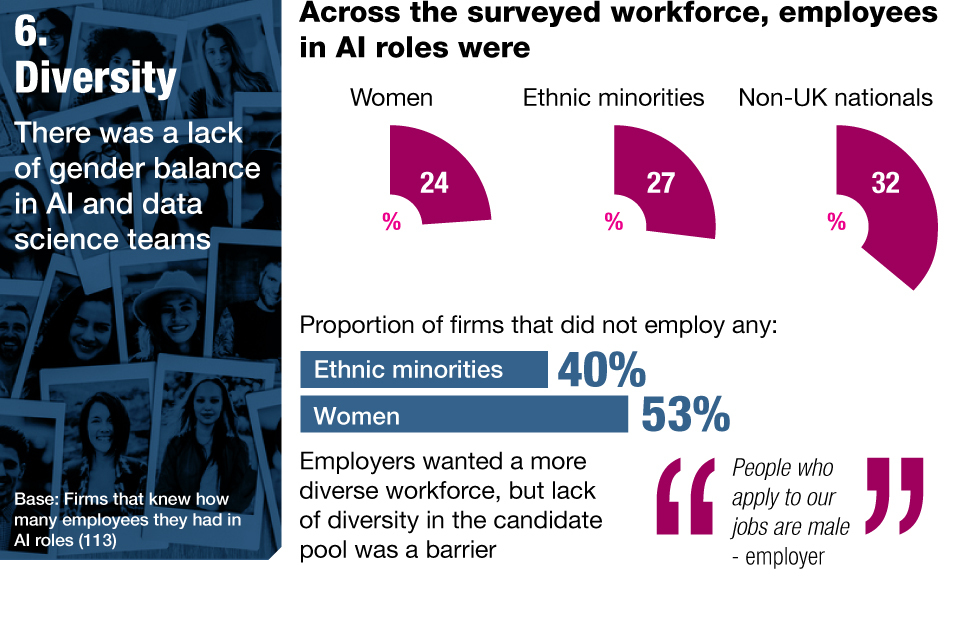
Diversity
-
Over half (53%) did not employ any females in AI roles. Overall, a quarter (24%) of the surveyed firms workforce was female, but this was greater than in the cyber sector (16%).
-
Two in five (40%) firms did not employ any staff from an ethnic minority background in AI roles; 27% of the surveyed firms workforce was from an ethnic minority group.
-
A similar proportion (41%) did not employ any non-UK nationals in AI roles; 28% of the surveyed firms’ workforce were non-UK nationals.
7. Qualifications
Many AI and data science professionals had postgraduate qualifications
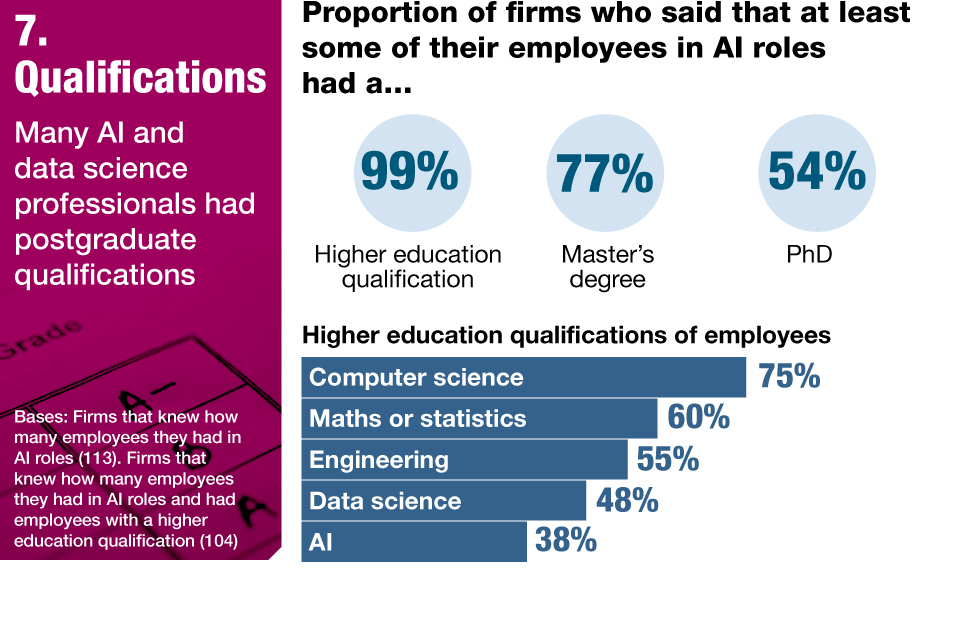
Qualifications
- 99% reported that at least some of their staff in AI roles held a university qualification, 77% a Master’s degree, and 54% a PhD.
- Interestingly, 95% of AI and Data Science job postings do not include a certification, which suggests there are very limited requests among employers for formal certifications compared to other professions.
8. Pathways into working in AI
Few AI and data science employees had entered at Apprentice level
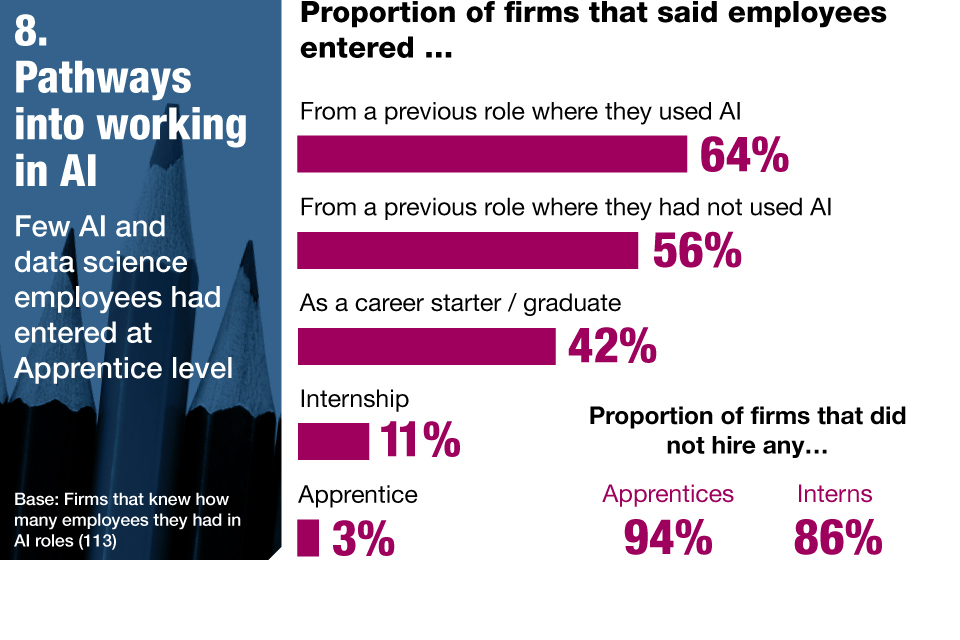
Pathways into working in AI
-
Career pathways into AI roles were diverse and lacked a clear structure.
-
Surveyed firms were unlikely to hire staff through an internship (11%) or as an apprentice (3%).
9. Training
A majority of firms had AI and data science employees who had been trained in the last year, though much of this was informal
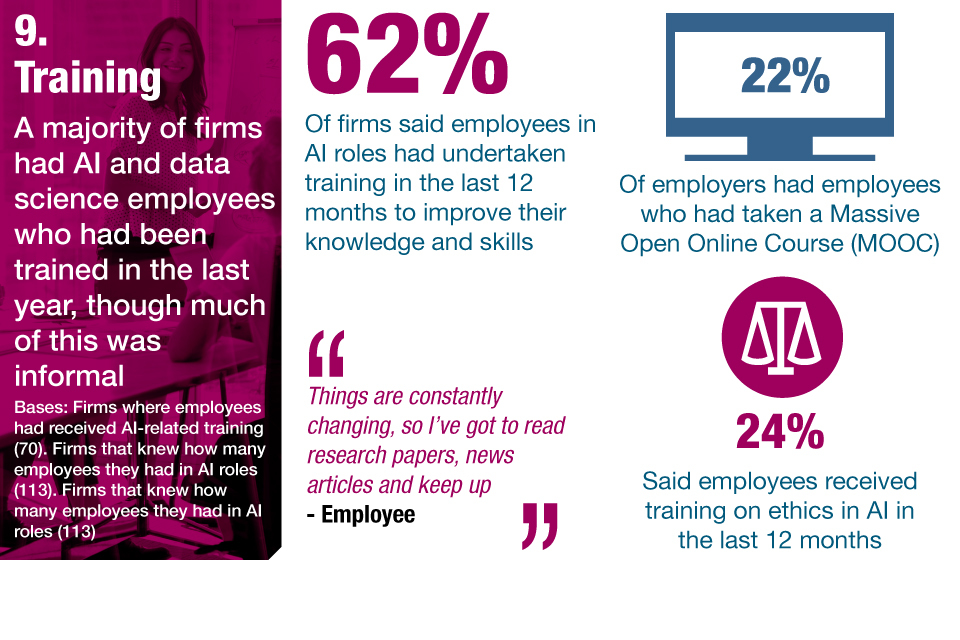
Training
-
Three in five surveyed firms (62%) reported that employees in AI roles had undertaken internal or external training in the last 12 months to improve their knowledge and skills.
-
Only a quarter of firms reported offered training on ethics in AI (24%).
